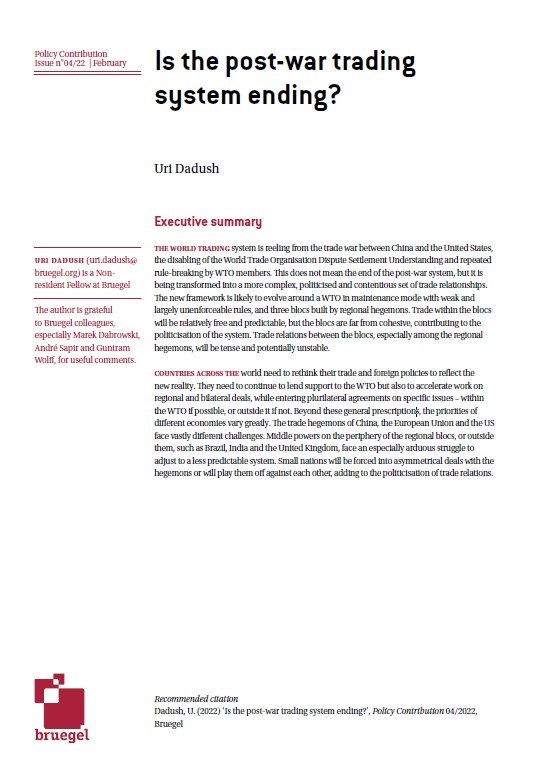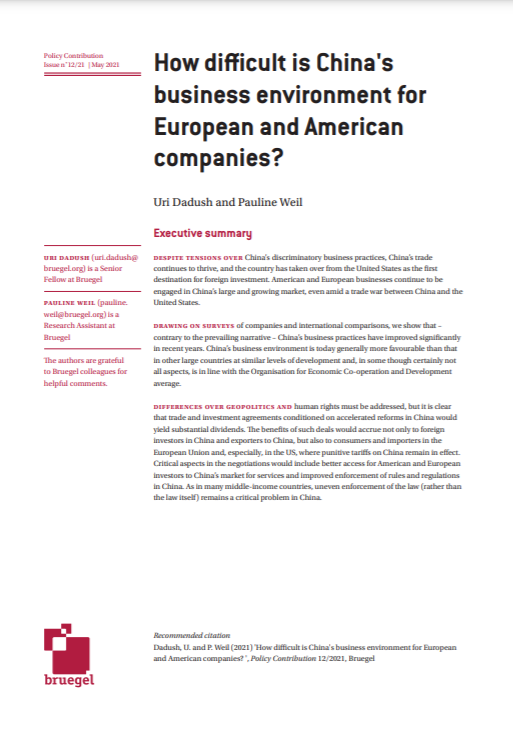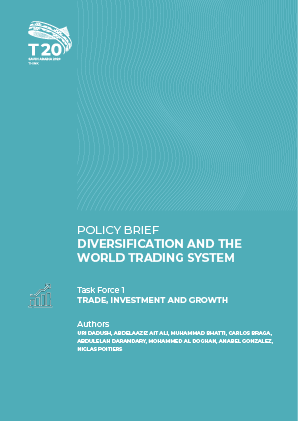Scholars

Uri Dadush
Non-Resident Fellow
Expertise: international trade, global economic prospects, migration, inequality
Uri Dadush is a non-resident scholar at Bruegel, based in Washington, DC and a Senior Fellow at the Policy Center for the New South in Rabat, Morocco. He is also Principal of Economic Policy International, LLC, providing consulting services to international organizations as well as corporations. He teaches international trade policy at the School of Public Policy at the University of Maryland and a course on globalization and development in the executive education program of the Ecole des Hautes Etudes Commerciales (HEC) and the Mohammed VI Polytechnic. He is a co-chair of the Trade, Investment and Globalization Task-Force of the T20. He was Vice-Chair of the Global Agenda Council on Trade and Investment at the World Economic Forum. His books include “WTO Accessions and Trade Multilateralism” (with Chiedu Osakwe, co-editor), “Juggernaut: How Emerging Markets Are Transforming Globalization” (with William Shaw), “Inequality in America” (with Kemal Dervis and others), “Currency Wars” (with Vera Eidelman, co-editor) and “Paradigm Lost: The Euro in Crisis”.
Dadush was previously Director of the International Economics Program at the Carnegie Endowment for International Peace, and Director of International Trade, as well as Director of Economic Policy, and Director of the Development Prospects Group at the World Bank. Based previously in London, Brussels, and Milan, he spent 15 years in the private sector, where he was President of the Economist Intelligence Unit, Group Vice President of Data Resources, Inc., and a consultant with Mc Kinsey and Co. His columns have appeared in the Financial Times, the Wall Street Journal, Foreign Affairs, Foreign Policy, Il Sole 24 Ore, and L’Espresso. He has a B.A. and M.A. in Economics from Hebrew University of Jerusalem and a Ph.D. in Business Economics from Harvard University.






